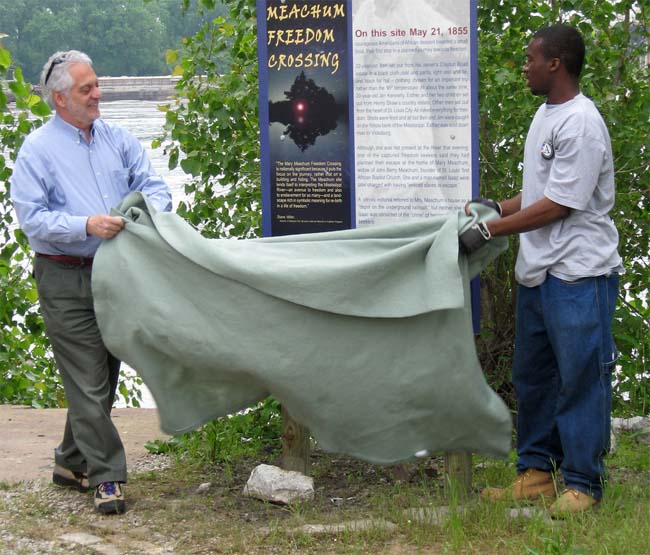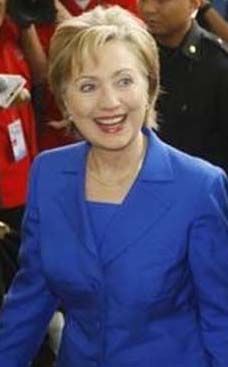
A half million people have served through AmeriCorps now - a voting constituency - and every member of Congress has shaken their hands and heard their stories of how they’ve worked in schools, nursing homes, crime-ridden neighborhoods to help communities. More important, lawmakers have met with the heads of the local non profit groups that run the AmeriCorps programs, often popular and influential leaders in any congressional district. Advocates for AmeriCorps now include not just national service fetishists like myself (wrote a book on the subject) but the entire non-profit and charitable sector. AmeriCorps members, you see, don’t work for the government. The feds offer the money for a small stipend and scholarship but most of the corps members are recruited and managed by non-profits. For charities, AmeriCorps has become a valuable form of in kind subsidy. Indeed, it’s often a way to increase a charity’s ability to use unpaid volunteers - a key reason it’s won over hardcore conservative like Hatch. “National service programs [have] a multiplying effect,” he declared during the debate. Based on past patterns, the 250,000 AmeriCorps members will help recruit or manage seven million unpaid volunteers. “This is a conservative program in many respects,” Hatch said.
Steven Waldman writes: How AmeriCorps Became Bipartisan
The Real Story of How AmeriCorps Became Bipartisan
By WSJ Staff
stevenwaldman
Photo: Grace Hill Settlement House interim President & CEO David Weber and Grace Hill AmeriCorps Trail Ranger Patrick Thrower unveil the new Mary Meachum Freedom Crossing sign. The Mary Meachum Freedom Crossing event is presented and hosted annually by Grace Hill AmeriCorps Trail Rangers with support from The Confluence Partnership. Confluence08-Meachum-01 by The Confluence Flickr Creative Commons Attribution-Share Alike 2.0 Generic
On my wall I have a copy of an old fashioned Senate roll call sheet – the handwritten tally from the clerk recording the passage of the original law creating AmeriCorps in 1993. There were hash marks next to just seven Republicans.
Yesterday the Senate approved a bill authorizing a tripling of AmeriCorps. It passed 79-19 – with 21 Republican votes. That’s right, more Republicans voted for the measure than against it.
In 1993 those Republicans who did support it were mostly moderates. This time supporters included conservatives like Roger Wicker and Thad Cochran of Mississippi, Michael Enzi of Wyoming and John McCain of Arizona.
I’m thrilled. It’s a great bill that will do more for the country than many things the Congress has done in years.
Having been (unfairly) criticized for his failure to engender bipartisanship in other areas, Obama may (unfairly) get credit for creating it in this case.
He does deserve some credit. He used his quasi State of the Union address to urge Congress to act – and then Congress did in record speed. More important, the White House made a shrewd decision to piggyback onto an existing (very bipartisan) legislative process rather than writing a brand new bill.
Early in 2008 Senator Edward Kennedy began talking to his good friend Orrin Hatch, the conservative Senator from Utah, about collaborating on legislation promoting service. Hatch had voted against the original service bill in 1993 and was skeptical about big government anything. Yet they came to agreement, in part proving how personal relationships still matter in politics. It’s not that Hatch agreed to this because he likes Kennedy; it’s that he agreed to take months looking for common ground, because he likes Kennedy. (In honor of the ailing Kennedy, they renamed the act after him).
But ultimately, the reasons AmeriCorps became bipartisan go much deeper than one relationship.
A half million people have served through AmeriCorps now - a voting constituency - and every member of Congress has shaken their hands and heard their stories of how they’ve worked in schools, nursing homes, crime-ridden neighborhoods to help communities.
More important, lawmakers have met with the heads of the local non profit groups that run the AmeriCorps programs, often popular and influential leaders in any congressional district. Advocates for AmeriCorps now include not just national service fetishists like myself (wrote a book on the subject) but the entire non-profit and charitable sector. AmeriCorps members, you see, don’t work for the government. The feds offer the money for a small stipend and scholarship but most of the corps members are recruited and managed by non-profits. For charities, AmeriCorps has become a valuable form of in kind subsidy.
Indeed, it’s often a way to increase a charity’s ability to use unpaid volunteers - a key reason it’s won over hardcore conservative like Hatch. “National service programs [have] a multiplying effect,” he declared during the debate. Based on past patterns, the 250,000 AmeriCorps members will help recruit or manage seven million unpaid volunteers. “This is a conservative program in many respects,” Hatch said.
Some of the seeds of AmeriCorps’s ultimate political success were sewed in the original legislation. Money is distributed through state commissions, appointed by the governors, to local non profit programs. This has created substantive problems. It’s very hard for the federal government to maintain quality around the country, and there’s no sense of one big national service effort the way there was for the CCC or the Peace Corps. But the structure gave Republican governors (and their allies in DC) a stake in the program.
Several individuals played critical roles along the way. Harris Wofford, the CEO of the Corporation for National Service for much of the Clinton years, was the one who started the serious process of turning AmeriCorps from “Clinton’s program” into a bipartisan one, spending much time and personal capital recruiting Republican supporters including Colin Powell. (I worked for Wofford during this period.) Though a government agency, the Corporation for National and Community Service has a board of directors, and on that board served prominent Republicans who then became crucial advocates (the most important being Marc Racicot, the Republican governor of Montana who later became chair of the Republican National Committee under George W. Bush, and Stephen Goldsmith, the Republican former mayor of Indianapolis.)
Significantly, George W. Bush supported AmeriCorps as did his Domestic Policy chief, John Bridgeland. This may not seem important now when Republicans are hardly asking “What Would W Do?” but Bush’s support broke the historical pattern in which national service was seen as a Democratic program.
And one more person played a key role: John McCain. During the 2008 presidential campaign, McCain endorsed the Kennedy-Hatch legislation, powerfully signaling that AmeriCorps now had bipartisan support.
Though the legislative process often makes bills worse, in this case, the horse trading seems to have made it better. At the request of Republicans, the bill now includes extra language preventing AmeriCorps members from engaging in political advocacy, including registering voters or helping labor unions.
Finally, it became bipartisan because the structure and essence of the program embodies principles of both parties. Democrats like the idea of government facilitating action to solve social problems. Republicans like that it is done frugally and through service rather than a handout. And both like the idea of promoting and asking for service to nation in a time of crisis.
Sometimes bipartisanship makes legislation weaker. In this case, bipartisanship made an important idea better – and, now, truly enduring.












